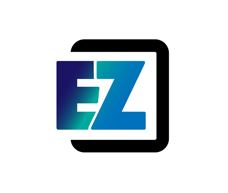Charles Ballay, M.D., Libertarian, Caution Against Signs of "1984" Party Dominance
- Charles Ballay

- Mar 16, 2024
- 3 min read
In 1984, Orwell masterfully illustrates a world where the truth is malleable, and the Party's control over information perpetuates its power. This control is mirrored in today's media landscape, where bias often overshadows objectivity, significantly affecting the visibility and viability of alternative political voices. For example, figures like the plurality of Libertarian party candidates, activists such as Cornel West and Jill Stein, and Robert Kennedy Jr., despite their significant following and vital messages, struggle to find a platform in mainstream media. This selective visibility echoes the Ministry of Truth's role in 1984,where information supportive of the regime is amplified while dissenting voices are silenced or marginalized.
The media's role extends beyond mere bias; it acts as a gatekeeper, deciding which ideas are heard and ignored. This gatekeeping is not a simple matter of preference but a reflection of deeper economic and political affiliations that skew the information landscape toward the interests of the two dominant parties. The challenge for alternative parties and their candidates, such as myself, is not just to speak but to be heard in a system that inherently favors the status quo.
Governmental interference in elections is another area where reality uncomfortably aligns with the dystopian future Orwell feared. The revelations about Facebook and other social media platforms' roles in recent elections highlight a disturbing trend of influence and manipulation. These platforms, under pressure from various government entities, have been accused of suppressing particular political perspectives while amplifying others, shaping the electoral landscape in ways that challenge the very foundation of democratic principles. This manipulation of the digital public square, where the majority of political discourse now occurs, raises serious questions about the integrity of our elections and the autonomy of our choices. Aren’t we not the country that promotes liberty, freedom of choice, and freedom of speech?
This interference extends beyond social media. The increasing reliance on digital technology in the electoral process opens up new avenues for manipulation, from targeted disinformation campaigns to the hacking of election infrastructure. These actions, whether by domestic or foreign actors, undermine public trust in the electoral process, a cornerstone of democratic governance.
In my campaign, I emphasize the need for a transparent, equitable, and fair electoral process that respects the diversity of thought and encourages the participation of all voices, not just those endorsed by the dominant political and media institutions. The lessons from 1984 are clear: the concentration of power and control over information are antithetical to democracy and freedom. To combat this, we must advocate for reforms that ensure the media and digital platforms operate in the public interest, promoting a diversity of perspectives and protecting the integrity of our democratic processes.
As I stand for the principles of liberty, choice, and transparency, I call upon all who cherish these values to join me in challenging the mechanisms of control and suppression that threaten our democratic society. Together, we can forge a path toward a future where governance is characterized by inclusiveness, fairness, and respect for individual freedoms. In this future, Orwell's 1984 remains a powerful warning, not a reflection of our reality.
In sum, the current state of media bias, the marginalization of alternative voices, and governmental interference in elections represent significant challenges to the democratic fabric of our society. Inspired by the vision and principles laid out in my campaign, we must confront these challenges head-on, advocating for a more open, just, and free society. I would advocate for alternative means of communication to promote alternative voices and candidates who deserve and should have a voice.




